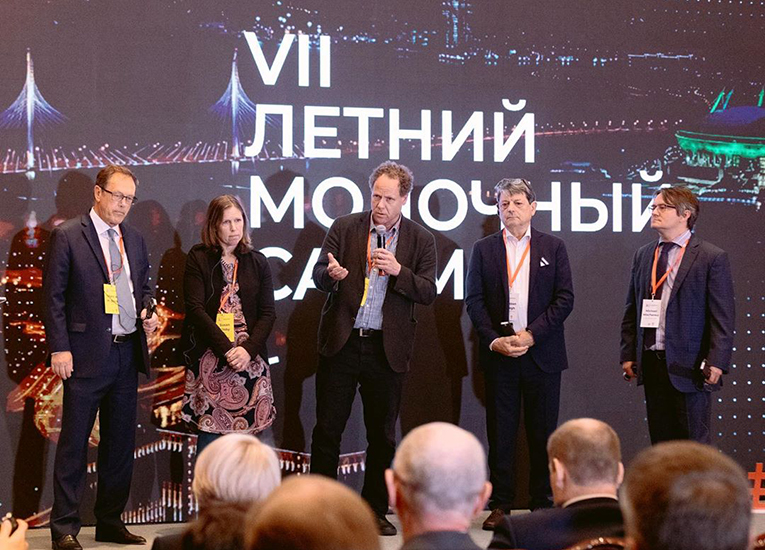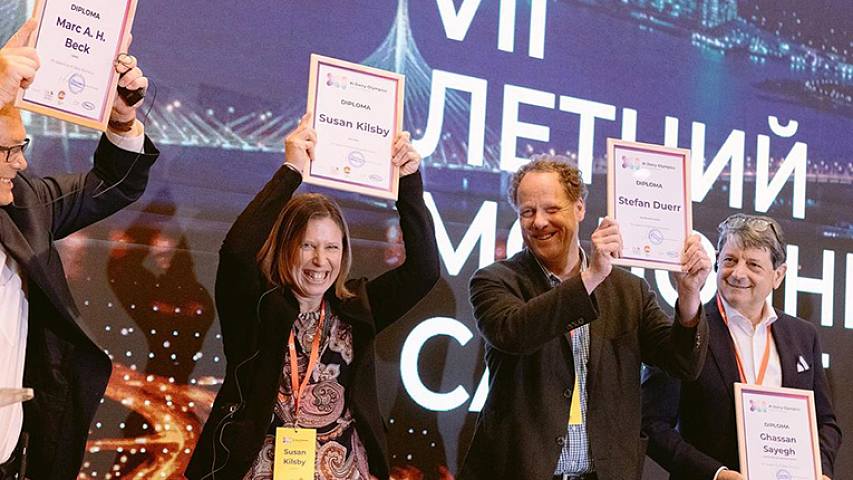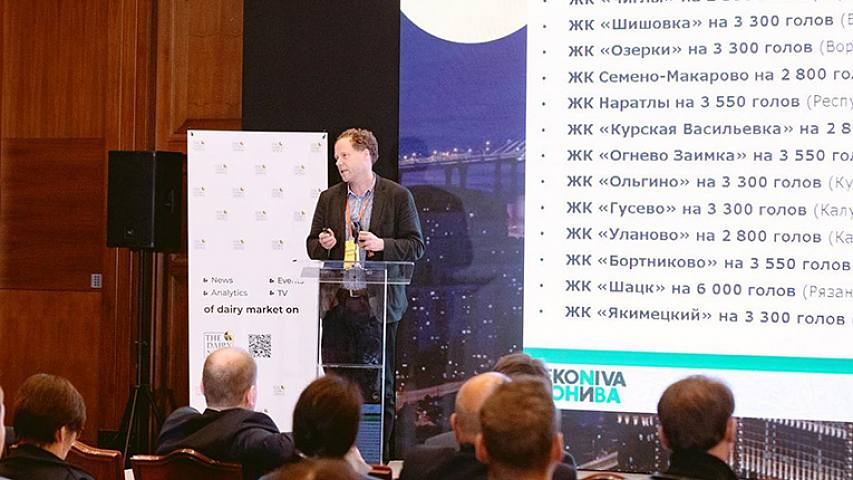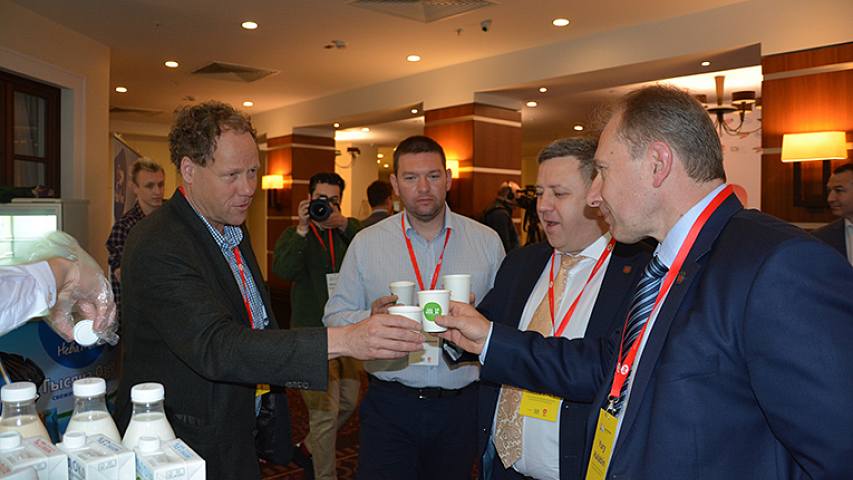Dairy exports from Russia show great potential
3 June 2019 News from the Company
In his capacity as President of the EkoNiva Group and Chairman of the Russian National Association of Milk Producers, Stefan Dürr gave a speech on "Development of the Russian Dairy Market up to 2023" at the VII Summer Dairy Summit which took place from 25 to 27 May 2019 in St. Petersburg. With more than 450 participants from 26 countries and 32 Russian regions, the Summer Dairy Summit in Saint Petersburg provides an important platform for exchange.
Stefan Dürr, CEO of Ekosem-Agrar AG, holding company of the EkoNiva Group, expects that as the industry continues to consolidate, in two to three years around 15 million tons of milk per annum will be produced by ten vertically integrated companies. Small and inefficient farms will leave the market and make room for modern facilities operated by larger companies, says Dürr. Although the Russian dairy industry as a whole will retain its diversity, the various forms of dairy farming will have to reposition themselves in the market.
"If we look at the export market, this business is, of course, reserved for large companies," says Dürr. "The production of handmade gourmet products, on the other hand, is the niche of small businesses."

In Dürr's opinion, the export potential of Russian milk is fairly high. With production costs of 20.80 rubles per litre, domestic milk is quite competitive on the world market. By comparison, the cost of producing one litre of milk in the USA is 21.05 rubles, and in Germany 24.75 rubles. However, for a successful export it is necessary to work on the image of Russian dairy products and further develop logistics.
"Over the next three to four years, we will continue to develop, build up our network and gain experience," said Stefan Dürr. "Exports of milk and dairy products from Russia could grow to $1 billion by 2025."
According to Dürr, the most promising regions for Russian milk exports include China, Vietnam, Korea as well as the Middle East and possibly also African countries. In Europe, on the other hand, there would be a greater chance of scoring points with niche products such as specialty cheeses from Siberia, since to Europeans Siberia represents the epitome of an unpolluted environment.
Despite technological progress and the prospect of producing milk in bioreactors in the not too distant future, Stefan Dürr is convinced: "Most people will always want to drink natural milk produced by a real cow. But to achieve this, we need to promote the product, talk about its benefits, how it is produced, how the animals are cared for and how the calves are raised."



